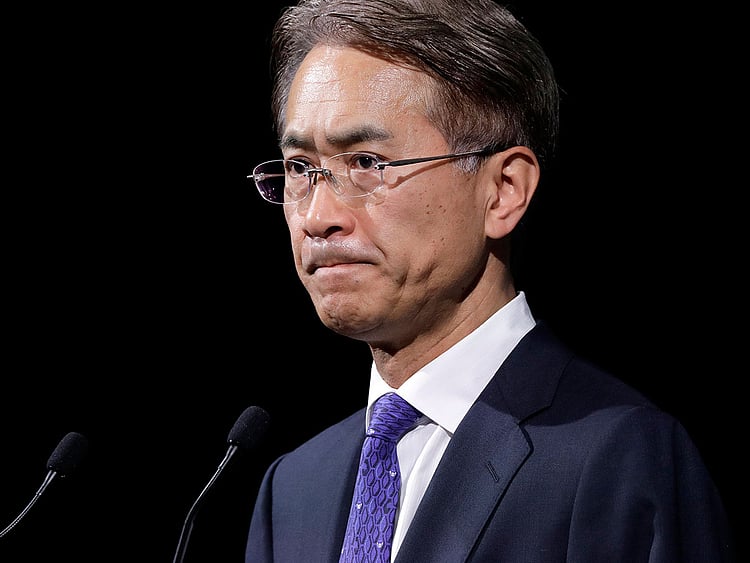Sony CEO lays out how gaming industry will cope with trade war
Executives stressed partnership with Microsoft Corp. was key to prepping for cloud gaming

Sony Corp. Chief Executive Officer Kenichiro Yoshida for the first time laid out his full long-term vision for the Japanese entertainment and electronics giant, detailing plans for dealing with big changes in the game industry and an escalating trade war.
Yoshida, who took the helm a little over a year ago, addressed shareholders at the company’s investor day on Tuesday at Sony’s headquarters in Tokyo. Here’s a look at what he and his lieutenants had to say about the company’s prospects.
The Evolution of Gaming
Faster internet speeds are making it possible to play games on remote servers without local hardware. That’s a threat to the PlayStation, which generates a third of Sony’s profits. Still, without a clear timetable when (or if) a shift could happen, Yoshida is developing a successor to the PlayStation 4 while laying the groundwork to ensure Sony can thrive if consumers embrace cloud gaming.
That Microsoft Partnership Will be Key
Executives stressed that a wide-ranging partnership with Microsoft Corp. announced last week was preliminary but key to prepping for cloud gaming. Sony is approaching with an “open” mindset toward areas for collaboration, PlayStation deputy head John Kodera said.
About the Trade War and Sensors
Yoshida announced he was increasing total capital expenditure to 1.2 trillion yen ($10.9 billion) from 1 trillion yen for the three years ending March 2021, driven mostly by investments in camera sensors. The boost comes even as a US ban on doing business with Huawei is raising fears of a hit to already-shrinking smartphone demand.
— Bloomberg
Sign up for the Daily Briefing
Get the latest news and updates straight to your inbox
Network Links
GN StoreDownload our app
© Al Nisr Publishing LLC 2026. All rights reserved.